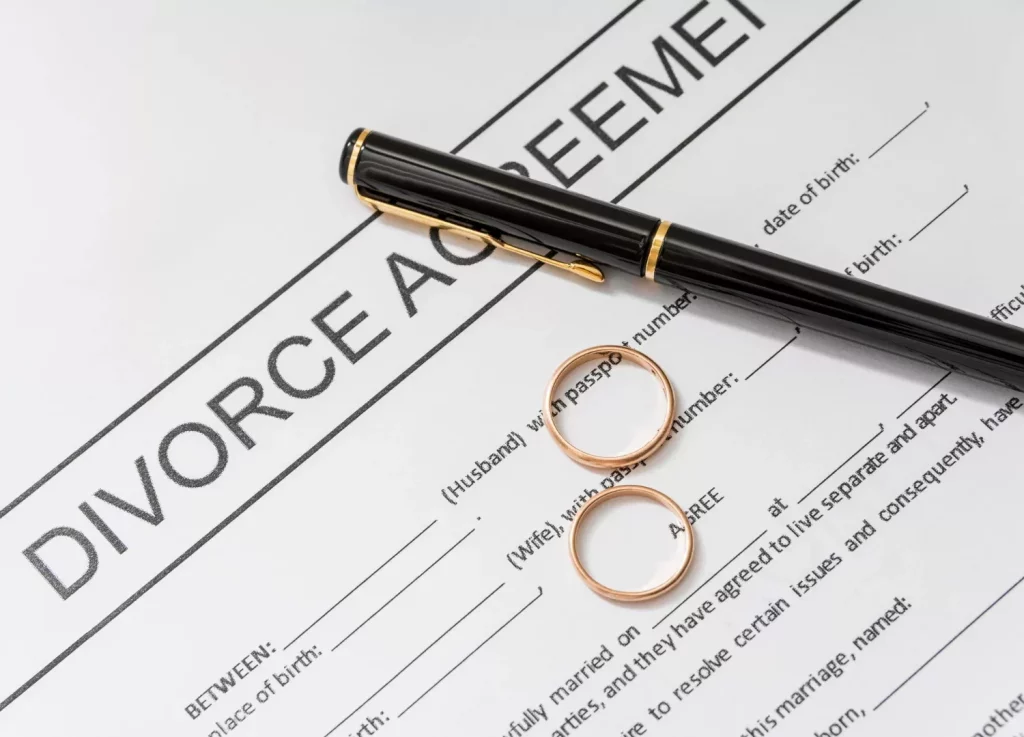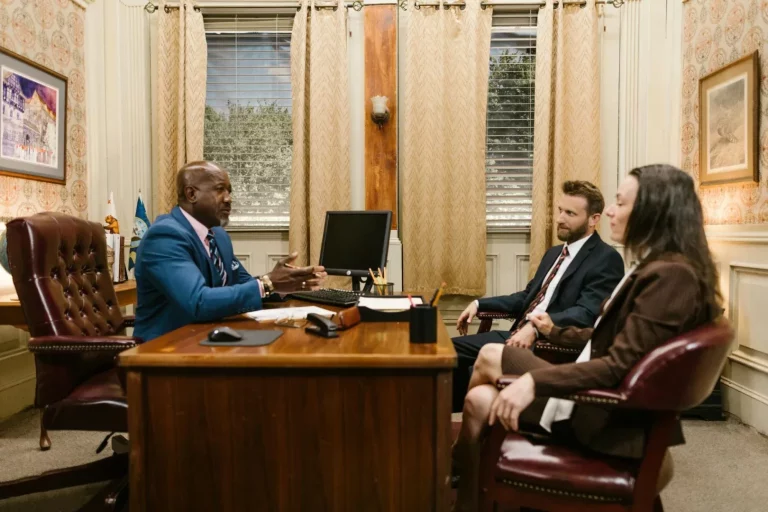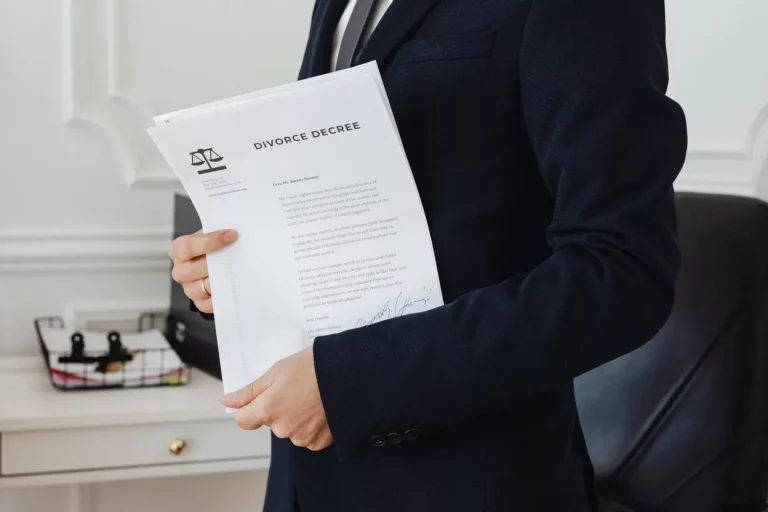Uncontested Divorce in Massachusetts
Ever wondered how an uncontested divorce in Massachusetts could save you time and money? At TheBostonDivorceLawyer, our experienced lawyers can guide you through the process smoothly and efficiently. Learn more about uncontested divorces in Massachusetts and how we can help you today.
As stated by the Massachusetts Trial Court, an uncontested divorce in Massachusetts is when both spouses agree on all terms and conditions of the divorce, such as division of property and child custody. This type of divorce is typically faster, cheaper, and less stressful than a contested divorce.
Process
Both sides agree on how to split their property and handle child custody. This makes the divorce process faster and cheaper than if they were fighting over these issues.
Starting an uncontested divorce usually involves filing a joint petition with the court. This document lists the agreed terms and asks the court to approve the divorce. The court will look over the petition and might set a hearing to finalize the divorce.
Both sides might need to share financial documents and other information to make sure the agreement is fair. Let me explain, if children are involved, the court may also require both parents to attend a parenting education program.
Once the court approves the divorce, it will issue a judgment of divorce. This paper officially ends the marriage and outlines the agreed terms. Both sides should review this document carefully to make sure it reflects what they agreed on.
In general, the process for an uncontested divorce in Massachusetts can be quite simple if both parties agree. However, it’s still important to meet all legal requirements and ensure the divorce terms are fair for both sides.
Requirements
Both spouses need to agree on important issues like dividing property, child custody, and support. They also have to file a Joint Petition for Divorce in court, saying they both want to end the marriage and have agreed on all matters.
The couple must have lived in Massachusetts for a certain time, usually six months, before filing for divorce. They must share all their financial details with each other, like assets, debts, and income, so the court can ensure fair property division and appropriate support orders. My point is, after meeting these requirements, they can move forward with the uncontested divorce process.
They might have to go to a hearing to finalize the divorce, where a judge will review their agreement to make sure it follows the law. If everything checks out, the judge will issue a divorce decree, officially ending the marriage.
Both parties need to understand and meet these requirements to avoid delays or issues. By cooperating and following the steps, couples can handle an uncontested divorce in Massachusetts smoothly and fairly.
Filing
Basically, filing for divorce means officially starting the process by submitting paperwork to the court.
In an uncontested divorce, both spouses agree on everything, like how to split property and debts, if alimony will be paid, and the custody and support of any children. Once they agree on these terms, they can start the filing process.
To file for an uncontested divorce in Massachusetts, one spouse prepares and submits a Joint Petition for Divorce to the court. This petition includes details about both spouses, their marriage, and their agreement on the terms of the divorce. Believe it or not, along with this petition, the couple must submit a separation agreement that details how they will handle their split.
After filing the paperwork, both spouses will attend a final hearing. At this hearing, a judge will review their agreement to make sure it follows Massachusetts divorce laws. If everything is correct, the judge will approve the divorce and issue a judgment of divorce.
Filing for an uncontested divorce in Massachusetts can be simple if both spouses agree. By following the required steps and submitting the necessary paperwork, couples can dissolve their marriage smoothly and avoid a lengthy court battle.
Agreement
Let me explain, this agreement is a written understanding between the spouses outlining how they will divide their assets, handle child custody, and address other important divorce-related matters.
Agreeing on these issues without going to court can save time and money. It allows both spouses to discuss and compromise to reach a solution that works for both of them.
The agreement can cover many things, such as who gets what property, spousal support, child support, and child custody arrangements. Basically, it’s important that the agreement is clear and detailed to avoid future misunderstandings or disputes.
Once both parties agree, it must be submitted to the court for approval. After the court approves it, the agreement becomes legally binding, and both parties must follow its terms.

Court
Both parties need to submit a joint petition to the court, saying that they both agree to the divorce and have worked out issues like dividing assets, child custody, and support.
The court will check the petition to make sure everything is legally correct. If it’s all good, a judge will set a date for a hearing where both parties must show up. During this hearing, the judge will ask questions to confirm that the divorce is truly uncontested and that both sides understand what they’re agreeing to.
As far as I’m concerned, if the judge is satisfied with the answers, they will issue a divorce decree, which officially ends the marriage. This decree will detail the agreed terms of the divorce, including any arrangements for children.
Though uncontested divorces are usually faster and cheaper than contested ones, it’s still very important to follow the legal steps correctly. Mistakes can cause delays or problems in finalizing the divorce.
In Massachusetts, the court is the final authority in uncontested divorces, making sure all legal requirements are met and that both parties’ rights are protected throughout the process.
My Concluding Remarks
Echoing our earlier comments in Massachusetts, an uncontested divorce offers couples a more streamlined and cost-effective way to dissolve their marriage without the need for a lengthy court battle.
What TheBostonDivorceLawyers is expecting you to is, by reaching an agreement on important issues such as division of assets and custody, couples can expedite the process and move on with their lives more quickly. Ultimately, an uncontested divorce in Massachusetts can provide a less stressful and more amicable resolution for both parties.
References
- “Divorce in Massachusetts: A People’s Guide to Divorce in Massachusetts” by Cynthia L. Braun, Jessica L. Babal, CreateSpace Independent Publishing Platform
- “Massachusetts Divorce Law Practice Manual” by Massachusetts Continuing Legal Education, Inc.
- “The Massachusetts Divorce Handbook” by Charles P. Kindregan Jr., Susan M. Cook, Massachusetts Continuing Legal Education, Inc.






